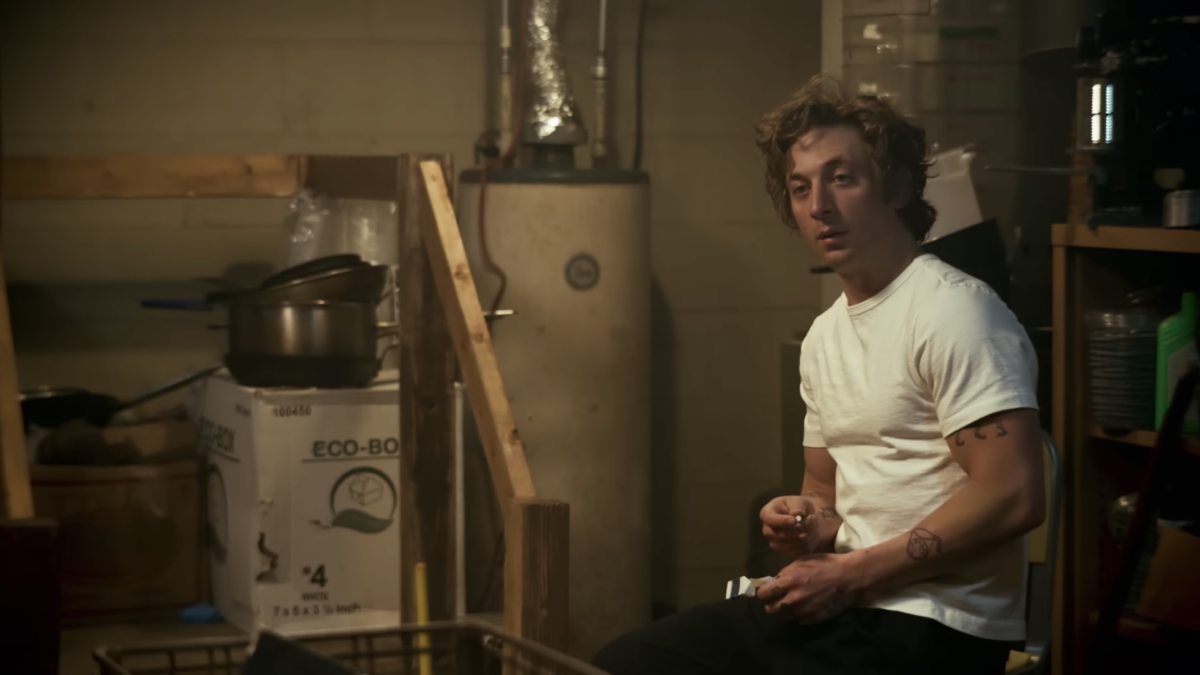Warning: Spoilers ahead.
FX’s chef-centered dramedy “The Bear” premiered its sophomore season this month. It was the most-streamed FX debut on Hulu the week it aired and earned 70 percent more streamed hours than the first season in the first four days. Despite praise from critics, including a nomination for Television Critics Association Awards, I haven’t heard much watercooler buzz about the show. Unlike so many shows critics love and regular viewers hate, “The Bear” deserves a bigger fan base.
Set in a failing Italian beef sandwich shop in Chicago, “The Bear” follows young acclaimed chef Carmy Berzatto (Jeremy Allen White, “Shameless”) as he tries to save his deceased brother’s business. It’s labeled as a dramedy, but season one was so light on humor that the label seemed unearned. The show continues to wrestle with heavy issues like drug addiction, verbal abuse, and severe family dysfunction through season two. These are dealt with in a way that doesn’t feel trope-ish or, conversely, too dark and gritty to be appropriate for a “dramedy.”
Like season one, in which an entire episode is filmed in one continuous shot, the writers of season two make bold choices — this time, mostly with the writing. Unlike many modern shows that rely on characters’ duplicity to maintain suspense, “The Bear” mostly takes the opposite approach: Its characters are unfiltered, heaping their honest feelings onto each other in scene after scene.
The result is an uncomfortable rawness, without the grimy feeling that so often accompanies dark dramas that claim to be “raw” — and this even while maintaining copious amounts of swearing, which is so often the crutch for bad attempts at “gritty” writing. In its most intense exhibit, episode six, “Fishes” is a full 50 minutes of the worst family Christmas most of us could possibly imagine. It’s masterfully executed, as if the writers were drawing from personal photographic memories, and packed with stars including Jamie Lee Curtis, Bob Odenkirk (“Better Call Saul”), and comedian John Mulaney.
Honesty and pain are well-mined veins in “The Bear.” Perhaps unsurprisingly, then, it is the first show I’ve watched that explicitly recognizes that Covid and lockdowns were a reality. It is not placed in some alternate universe (i.e., “Ted Lasso”), where Covid and its attendant policy responses didn’t happen. Richie vents about how hard it was to keep the shop afloat during Covid, and in season two, Richie has a retort about how difficult hiring is “since Covid.” The father of sous chef Sidney (Ayo Edebiri, “Abbott Elementary”) warns her of how challenging the climate has been for restaurants, prompting her to research how many high-end restaurants didn’t make it through the Covid era.
The show is based in Chicago — a city everyone knows underwent a hard and prolonged lockdown. For this alone, in an environment where it seems like so many just want to forget 2020 or even pretend like lockdowns didn’t happen, the show should be commended. Hopefully, more writers follow “The Bear’s” lead by being true to history.
Season two follows chefs Carmy and Sidney, the staff, and Carmy’s sister, Natalie (Abby Elliot, “SNL,” “Odd Mom Out”), as they rebuild the restaurant into a high-end eatery on a tight schedule. The season brings much-needed levity and tenderness by introducing a love interest for erstwhile depressed and overworked Carmy and sending baker Marcus (Lionel Boyce, “Loiter Squad”) to Copenhagen to hone advanced pastry skills and find inspiration.
Not surprisingly for a dramedy, “The Bear’s” success derives chiefly from its compelling dialogue and superb character development. One of its most satisfying arcs pertains to “cousin” Richie (Ebon Moss-Bachrach, “The Punisher,” “Girls”), who begins season two in anguish over not having a purpose. The season ends with the belligerent 45-year-old former sandwich-maker donning a suit and learning the fine art of service at one of the world’s most renowned Michelin-star restaurants. Even something so trivial (in the grand scheme of “difference-making”) as making someone’s day with an amazing restaurant experience is meaningful and requires talent and skill.
The show has a lot to say about damage: family trauma, workplace trauma, economic hardship. The struggles of the kitchen staff teach us we cannot rise above what we don’t deal with honestly. The same is true for the massive collective failure of our Covid response and resulting economic, emotional, and social damage that persists to this day. We must reckon with it, however painful. And if we need a reminder of how it’s possible to better ourselves and find purpose again, Richie now wears suits.









